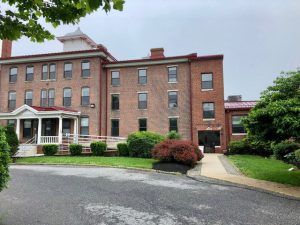Peach:
Oriental Fruit Moth (OFM): Second generation adults are flying in southern and northern counties. Degree day spray timing predictions are updated since last week and are shown below. The second brood often causes the most damage on peaches, since larvae can enter both growing tips and young fruit. Particular attention should be paid to non-bearing orchards that may not be receiving regular insecticide applications. OFM can build up in non-bearing blocks and create pressure for production blocks. The timing for second brood OFM applications is NOW in southern counties where mating disruption is not being used. Growers in northern counties should plan of targeting OFM by the middle of next week.

